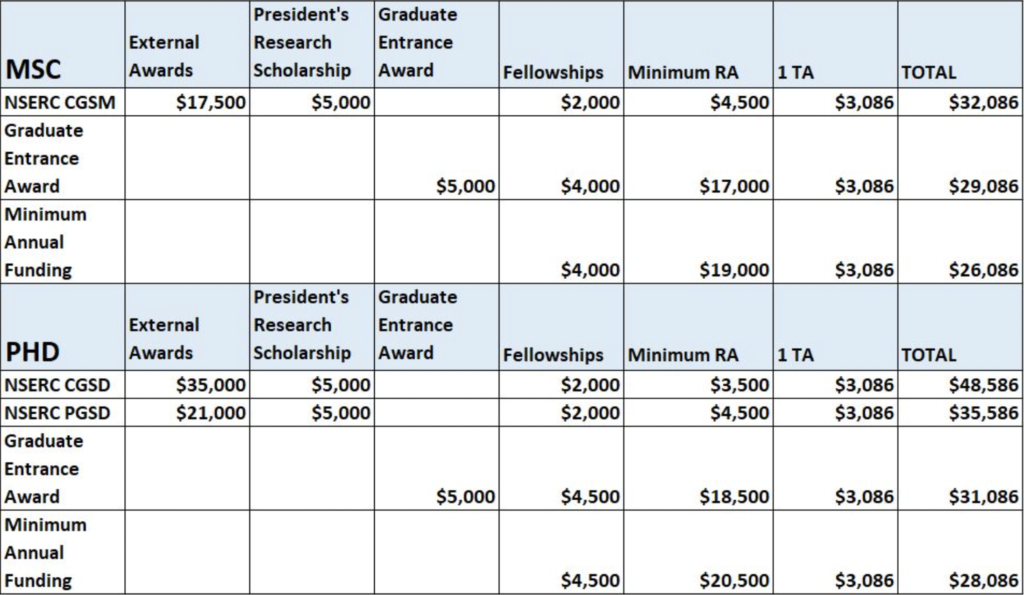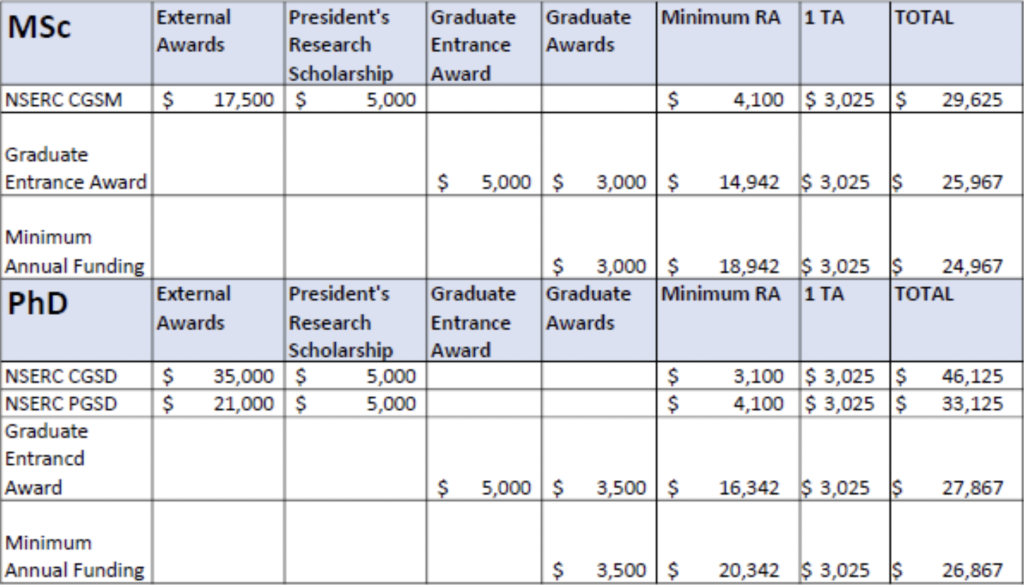Current Minimum Funding
The UVic Physics and Astronomy department provides a minimum funding breakdown. This is an important step towards transparency and consistency across the department that is not standard across Universities (or even departments here at UVic).
We do not repeat the minimum funding outline here, as your up-to-date minimum funding should always be from the department website. However, we have historical charts below for your reference!
Other Things to Note
There are several important things to note:
- Your minimum funding does not include tuition, which you will need to pay each semester (including the Summer semester). Indeed, UVic is not up front about this, but as of 2024 its approximately 3200 in the Fall, 2500 in the Spring and 2500 in the Summer (for Canadian students). Classes do not cost extra or change your tuition in any way. Make sure to include these costs in your budget accordingly.
- Tuition is more expensive for international students, though the department pays international students extra in grad awards/fellowships to account for the difference in tuition.
- If you have a UVic award, it is guaranteed for your first year at UVic and your funding will normally then go to the minimum funding level unless your supervisor agrees to boost your research assistantship (RA) to match the difference. Have this discussion with your supervisor in the summer before the following term.
- The minimum funding is set by the department. The minimum funding was (significantly) raised for the 2017-2018 school year to the median minimum funding across Canada. The TA wage increases by ~1% a year from the Union negotiated contract (still below inflation of ~2%). You should keep track of how your funding compares to schools around the country. More on this below.
TA Union
If you choose to TA and this is included in your yearly funding, you are automatically part of CUPE 4163, the UVic TA union. Other than collectively bargaining for safe working conditions and fair wages, there are other benefits such as the travel fund and hardship fund, of which we encourage you to take advantage. For more information, click here.
RA Union
There is a movement across Canada to unionize RA payments to establish consistent and liveable wages for all graduate students. CUPE has recently (late 2023?) announced that they intend to unionize in the near future. For more information, click here.
Historical Minimum Funding
For your reference, here is how minimum funding has changed over the years.

From 2008 to 2024, there was no increase in the value of NSERC awards. In 2024, the federal government made a big investment into graduate funding for science programs, increasing both the total value of the awards and the number of awards available. Although the changes to the value of the awards were to be effective September 2024, the announcement of what the specific funding changes would be was not known until our dept. admin had developed next years minimum funding chart (see first chart below). Thus, they had to remake the chart (see above). Comparing the two, you can see that the NSERC Masters award increased in value from $17, 500 to $27, 000; the minimum RA came down a little bit and the newly added fellowships were revoked (these used to be Grad Awards and were not available for NSERC holders, see 2023-2024). The PhD NSERC award was previously tiered in value, with the highest ranked applications receiving $35, 000 in funding (for three years) and the next highest ranked applications receiving $21, 000. This has been consolidated into one award valued at $40, 000. This is a win for grad students and science in general (!) and will surely lead to a net increase in federal dollars coming to UVic grad students.

